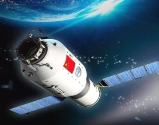
【题目】Tom didn’t go hiking with his classmates ____ his illness.
A. because B. because of C. as D. since
科目:初中英语 来源: 题型:
【题目】 _______he had failed many times, he didn’t give up and succeeded in the end.
A. Unless B. Although C. If
查看答案和解析>>
科目:初中英语 来源: 题型:
【题目】【重庆市2015年初中毕业暨高中招生考试英语试题(A卷)】You’d better take care, _____ you will hurt your eyes.
A. so B. but C. or D. and
查看答案和解析>>
科目:初中英语 来源: 题型:
【题目】—How many women doctors are there in your hospital?
—______ them ______ over twenty.
A.A number of; are
B.The number of; are
C.The number of; is
查看答案和解析>>
科目:初中英语 来源: 题型:
【题目】【2015年江苏省苏州市中考英语试题】He hasn’t got any hobbies — you call watching TV a hobby.
A. while B. unless C. as D. if
查看答案和解析>>
科目:初中英语 来源: 题型:
【题目】
What do you say when you pick up the phone?
You say “hello”, of course.
What do you say when someone introduces a friend, a relative, anybody at all?
You say “hello”.
“Hello” has been for a long time considered to be the standard English language greeting since English people began greeting. But is that true?
It may be the most spoken word on the planet and the English word that most people learn first. The word is so familiar to us that it's surprising how new it is: “hello” has only been in use for about the last 200 years of the 1000-year history of English.
The Oxford English Dictionary says the first published use of “hello” goes back only to 1827. But it wasn't mainly a greeting back then. People in the 1830s said “hello” to attract attention (“Hello, what do you think you're doing?”), or to express surprise (“Hello, what do we have here?”).
But the true breakthrough for this now-common word was when it was used in the service of brand-new technology: the telephone. According to the Oxford English Dictionary, it was Thomas Edison who put “hello” into common usage. He asked the people who used his phone to say “hello” when answering—which required people to address an unseen and unknown person. It was simpler and more efficient (高效的) than some other greetings used in the early days of the telephone, such as “Do I get you?” and “Are you there?” However, the actual inventor of the telephone, Alexander Graham Bell, thought that the better word was “ahoy”, which turns out to be much longer—at least 100 years longer—than “hello”. It too, was a greeting from the Dutch (荷兰语) “hoi” meaning “hello.” For his entire life, Bell insisted on answering the phone with “Ahoy.”

“Hello” obviously caught on, and spread along with the telephone. Had it not been for Edison, our greetings might be very different today. It could be possible that we are still greeting people with “Ahoy” when picking up the phone.
【1】How long has “hello” been used in the 1000-year history of the English language?
【2】What was the purpose of people saying “hello” in the 1830s?
【3】Who put “hello” into common usage?
【4】What word did Bell prefer to use when answering the phone?
【5】What is the passage mainly about?
查看答案和解析>>
科目:初中英语 来源: 题型:
【题目】Don't let homework______too much time. Children need to play.
A. give up B. take up
C. look up D. put up
查看答案和解析>>
科目:初中英语 来源: 题型:
【题目】

On April 2, we said goodbye to Tiangong I, China’s first space lab. According to the China Manned Space Agency (中国载人航天), Tiangong I re-entered the Earth’s atmosphere (大气层) and some of its debris (碎片) fell into the South Pacific Ocean.
There are many spacecraft (宇宙飞船) that are still in orbit
(轨道) above the Earth. After finishing their trips, they will all re-enter the Earth’s atmosphere like Tiangong I.
There are two types of re-entries: controlled re-entry and uncontrolled re-entry.
Some satellites and manned spacecraft come back to the Earth in a controlled re-entry. Experts calculate (计算) the path of the falling spacecraft and its speed. Thy can guide the spacecraft to fall in a chosen area.
Some spacecraft may have problems while in space after a certain amount of time. These spacecraft come back in an uncontrolled re-entry. It is hard to tell when and where these spacecraft will fall until the last few hours. The US space station Skylab came back partially uncontrolled in 1979. Parts of the station fell in western Australia, but no one was hurt.
During re-entry, most of the spacecraft will burn up while passing through the Earth’s atmosphere. Only a small amount of the debris will reach the ground. The debris typically ends up falling into the ocean, China Daily reported.
【1】The debris from Tiangong I .
A. fell into the South Pacific Ocean B. fell in western Australia
C. fell in the central part of the US D. fell into the North Pacific Ocean
【2】When the spacecraft finishes its trip, it will .
A. burn up and disappear B. speed up and fly back to the Earth
C. enter another orbit and stay in space D. re-enter the Earth’s atmosphere
【3】From the passage, we know there are types of re-entries.
A. one B. two C. three D. four
【4】Which of the following is TRUE about the US space station Skylab?
A. It came back in a controlled re-entry. B. Some people were hurt by its debris.
C. Parts of it fell in western Australia. D. It was directed to fall into the ocean.
【5】This story most probably comes from .
A. a story book B. a movie review
C. a science magazine D. a government report
查看答案和解析>>
科目:初中英语 来源: 题型:
【题目】Lorry is also called_______ in American English.
A. truck B. store C. fall D. yard
查看答案和解析>>
湖北省互联网违法和不良信息举报平台 | 网上有害信息举报专区 | 电信诈骗举报专区 | 涉历史虚无主义有害信息举报专区 | 涉企侵权举报专区
违法和不良信息举报电话:027-86699610 举报邮箱:58377363@163.com